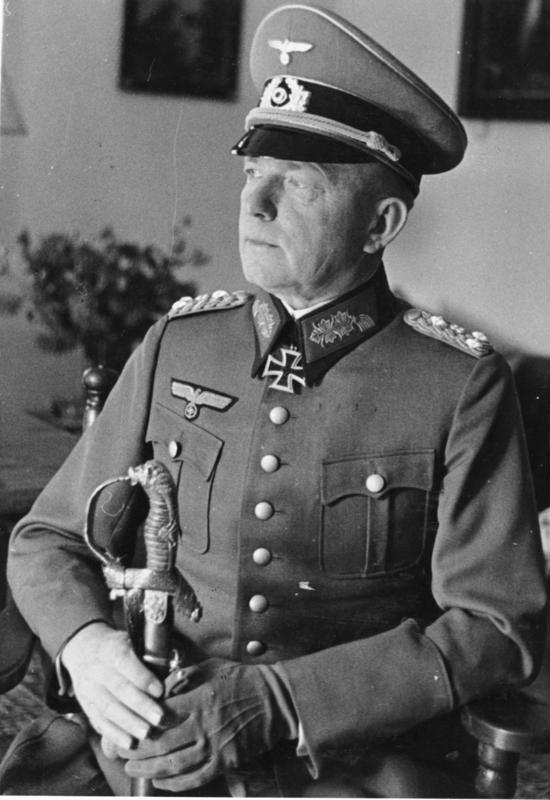Ewald von Kleist
Paul Ludwig Ewald von Kleist was a German Field Marshal in World War Two. He saw action in Poland, Western Europe, Yugoslavia, Greece and the USSR. Kleist was convicted of war crimes in the USSR and died in captivity in 1954. He is not to be confused with the younger Ewald-Heinrich von Kleist-Schmenzin who took part in the July Bomb Plot and died in 2013.
Born in 1881, Kleist served as a cavalry officer during World War One. After the war, he stayed in the depleted German army - the ‘Reichswehr’ - and held several administrative and training positions. By April 1934, he had been promoted to the rank of lieutenant general and commanded the 2nd Cavalry Division; in 1936, he was given control of the VIII Corps.
In February 1938, Hitler purged several figures in the army during the Blomberg–Fritsch Affair. Kleist was also relieved of his post. However, in 1939 Hitler was in need of high quality army officers. Kleist was brought out of semi-retirement and given command of XXII Panzer corps for the attack on Poland. Kleist’s corps performed well and he was given command of a Panzergruppe for the attack on the West in May 1940.

In 1941, Kleist was handed control of 1st Panzergruppe, which consisted of five Panzer divisions. The 1st Panzergruppe took part in the invasions of Greece and Yugoslavia, and then in the attack on the USSR as part of Army Group South. This invasion was initially extremely successful.
In 1942 Kleist was ordered to the Caucasus to capture oil wells; in November 1942 he was tasked with leading Army Group A; and in 1943 he was made Field Marshal.
German fortunes in the USSR soon took a turn for the worse. They suffered a devastating loss at the Battle of Stalingrad, which ended in the surrender of around 90,000 German troops in February 1943. Axis Casualties (captured, wounded or killed) are estimated at around 850,000. This was a turning point in Germany’s Eastern campaign.
In March 1944 the 8th Army was in danger of being decimated by the Red Army. Kleist ignored Hitler’s direct orders and told the 8th Army to retreat. He was promptly dismissed, and retired for the rest of the war.
In 1945, Kleist was held as a prisoner of war and arrested by Allied Forces. He first faced allegations of war crimes in Yugoslavia, then in the USSR, where he was charged in 1948. Kleist was pronounced guilty, sentenced to ten years in captivity and died in Vladimir Prison in 1954.
See also: Gunther Kluge
MLA Citation/Reference
"Ewald von Kleist". HistoryLearning.com. 2024. Web.
